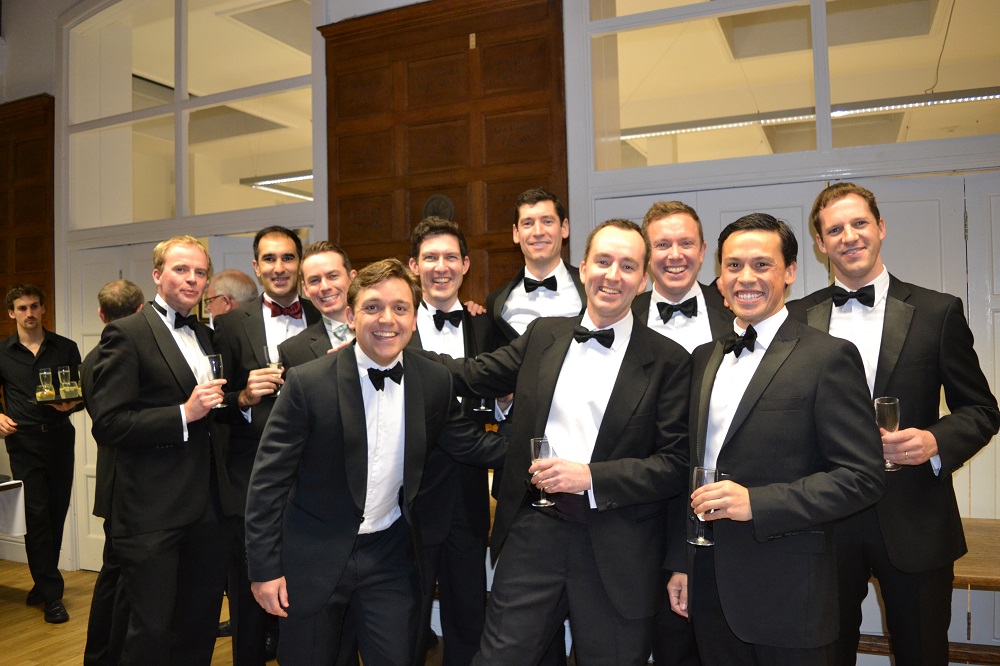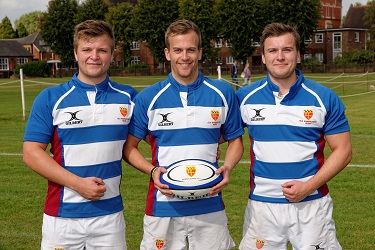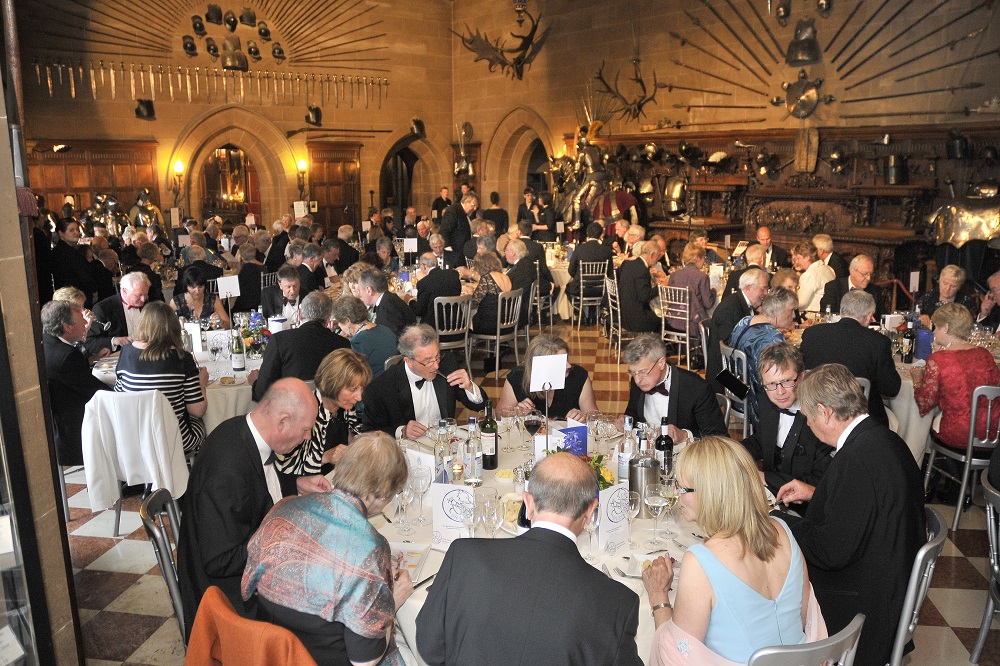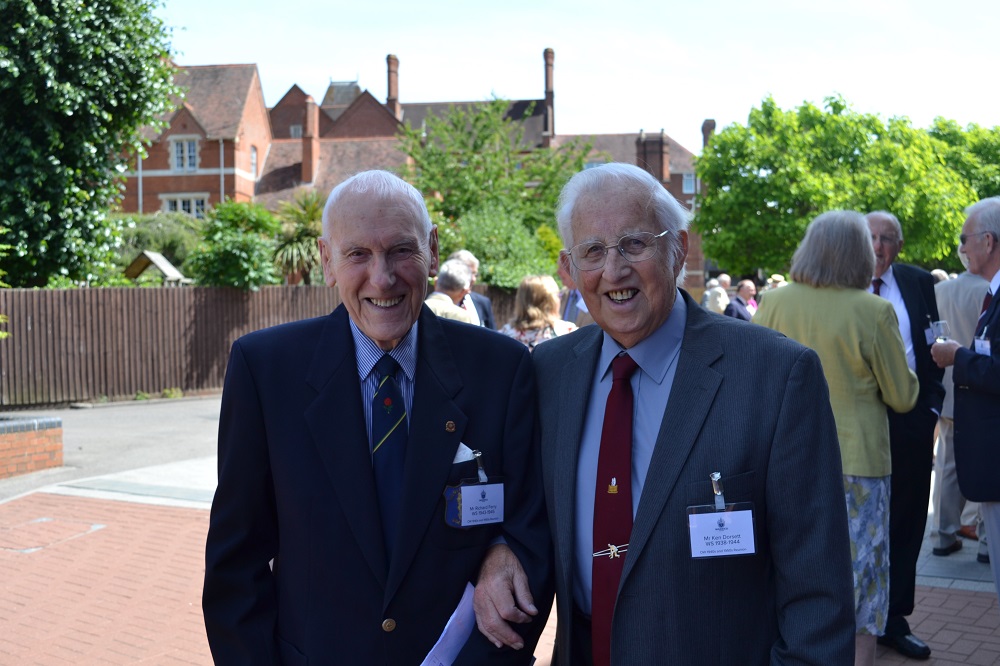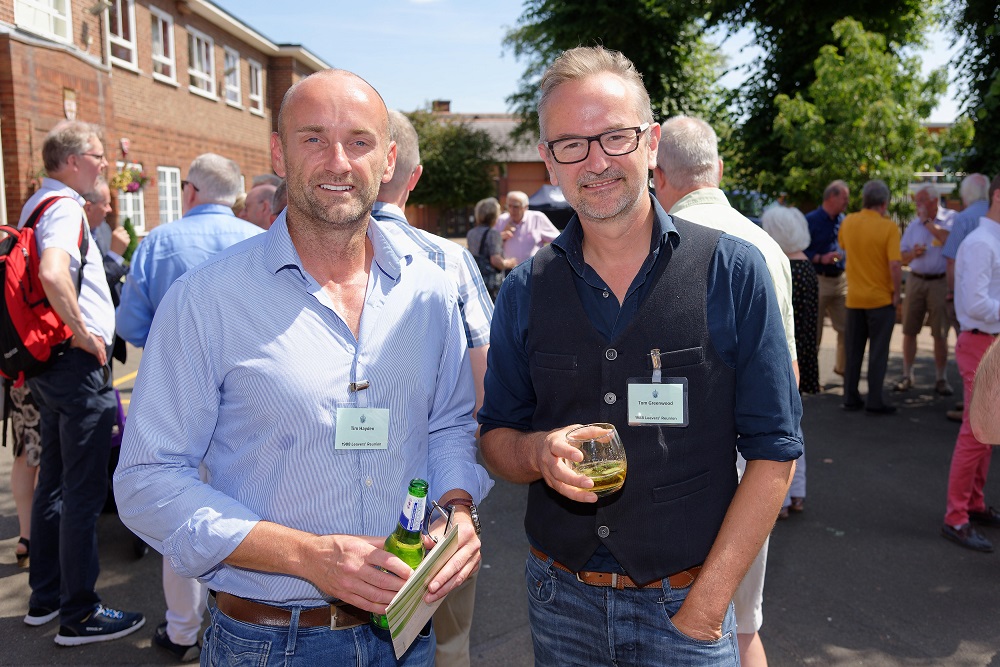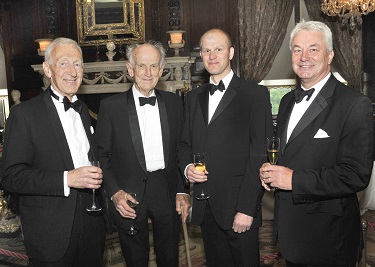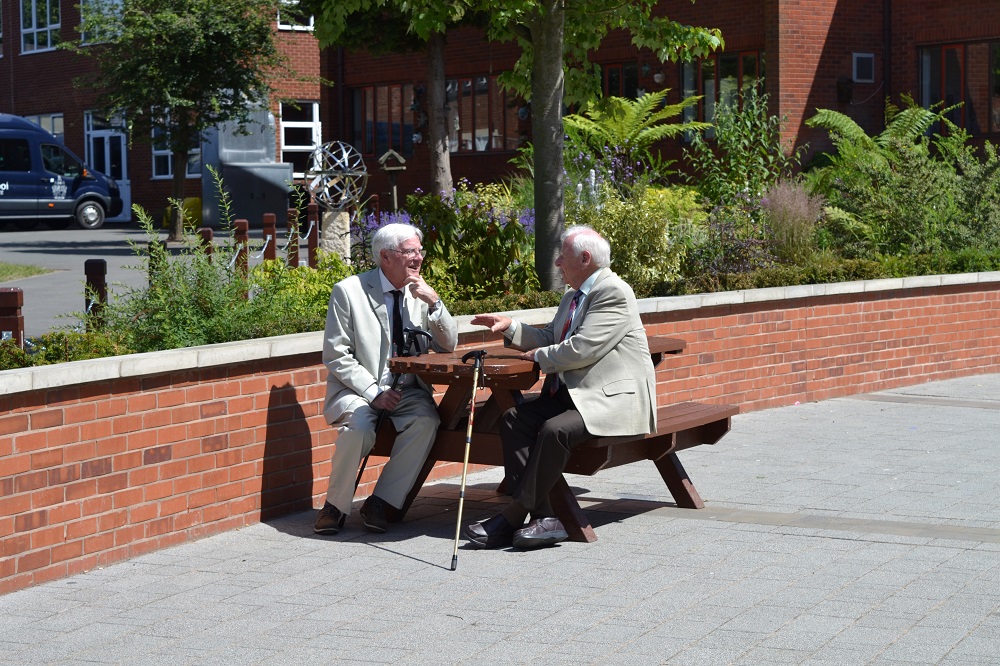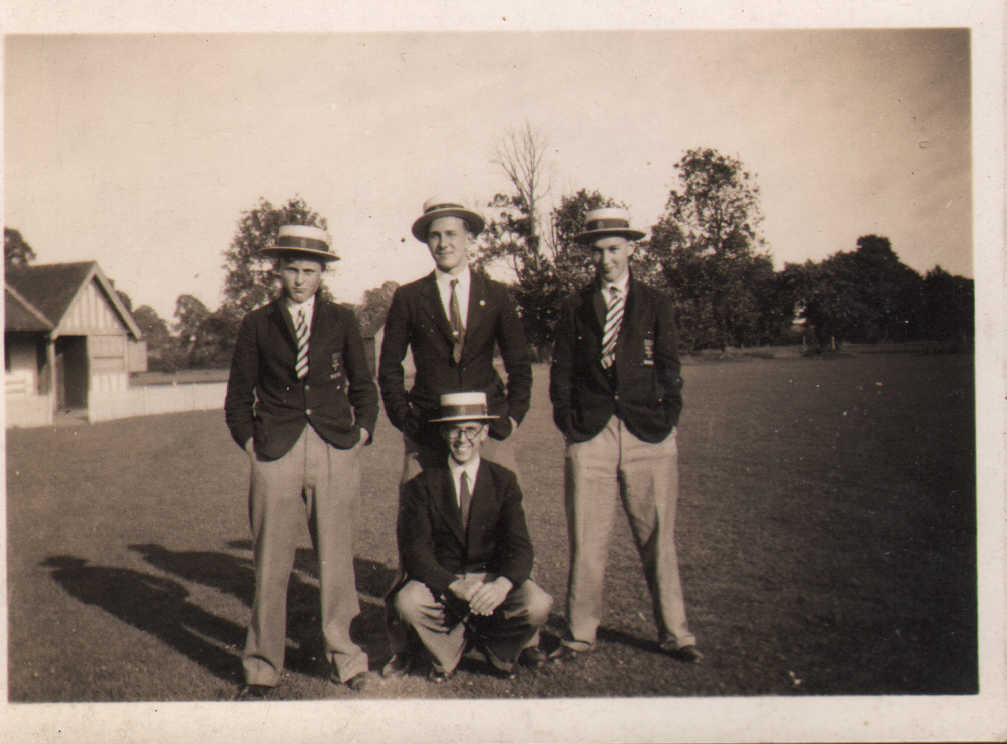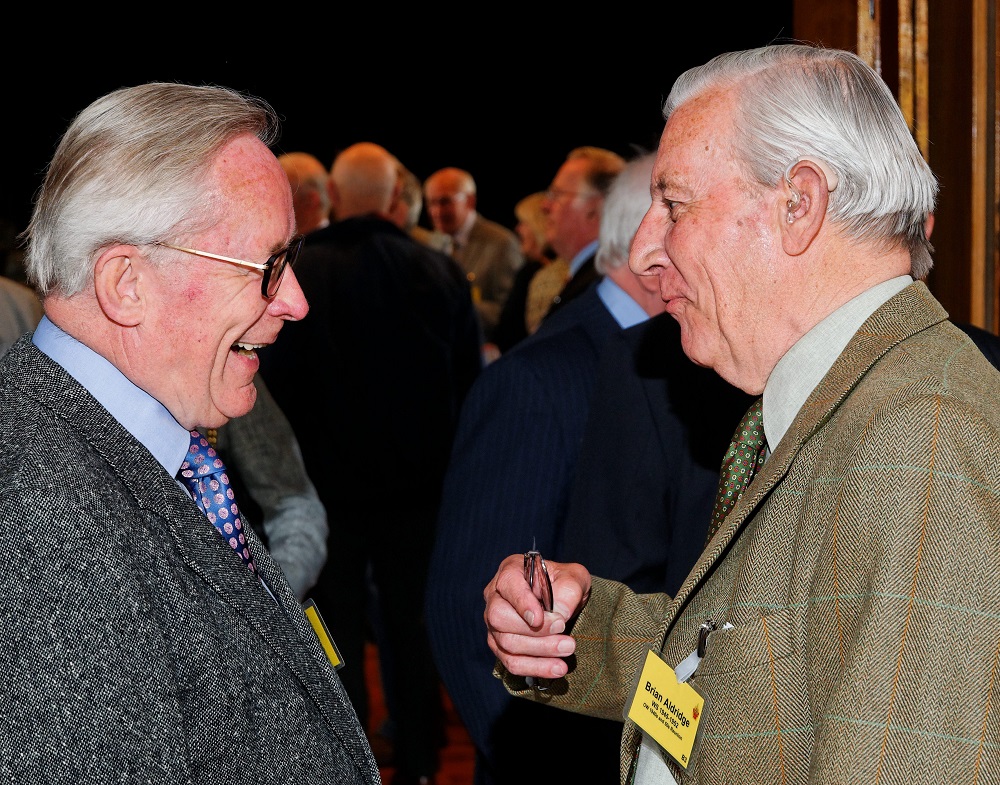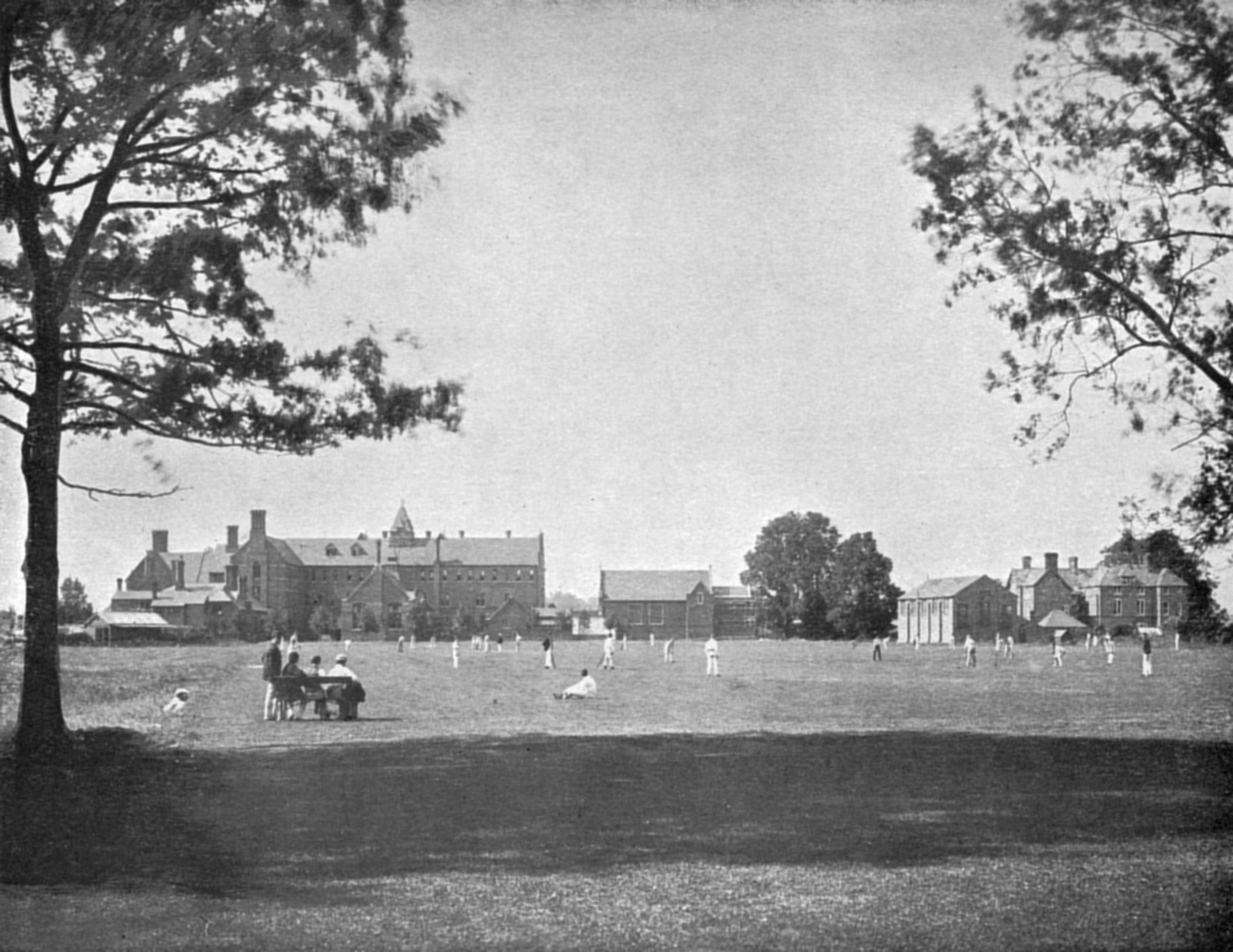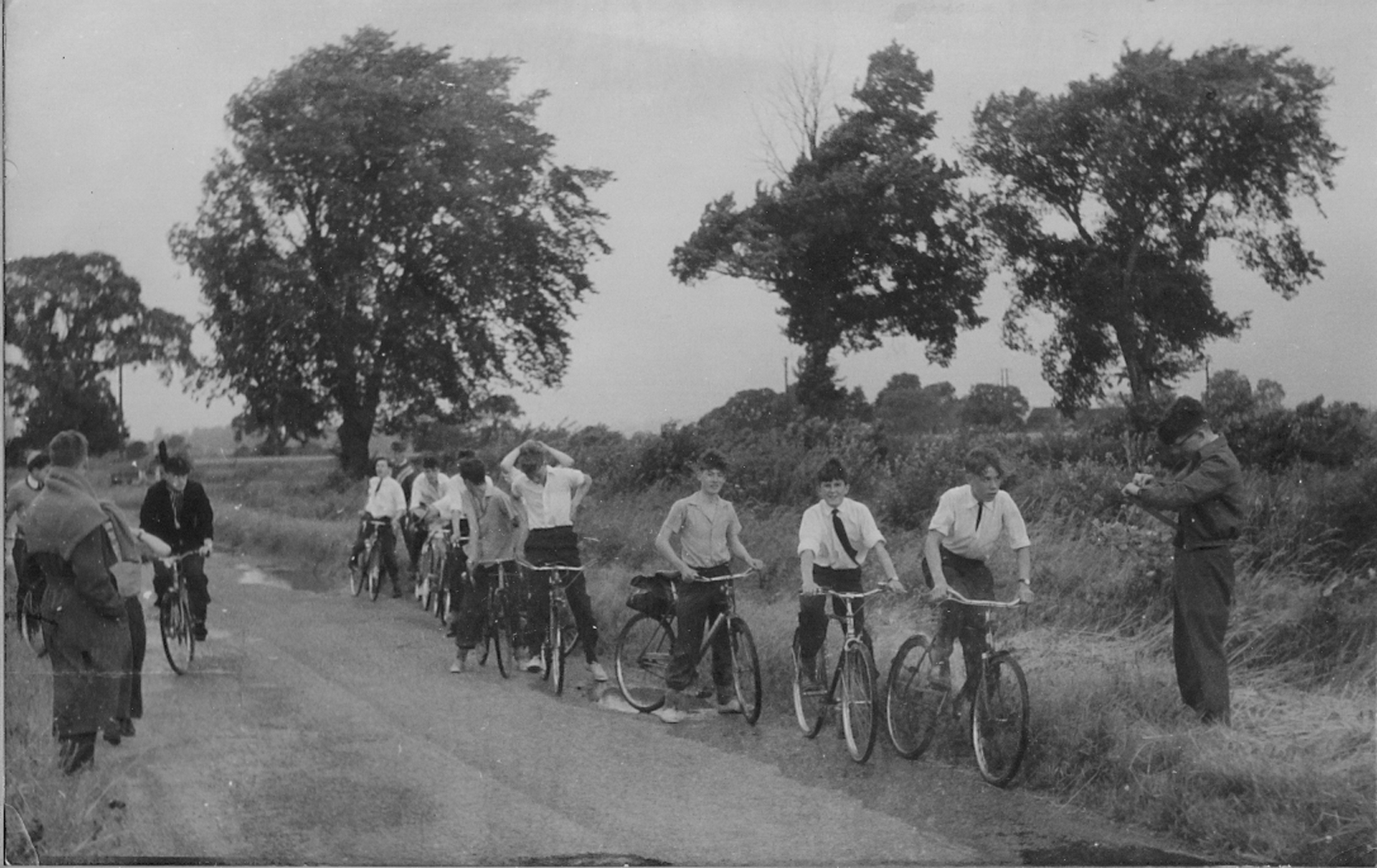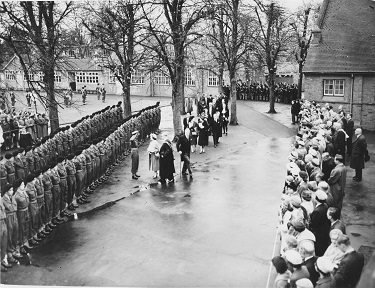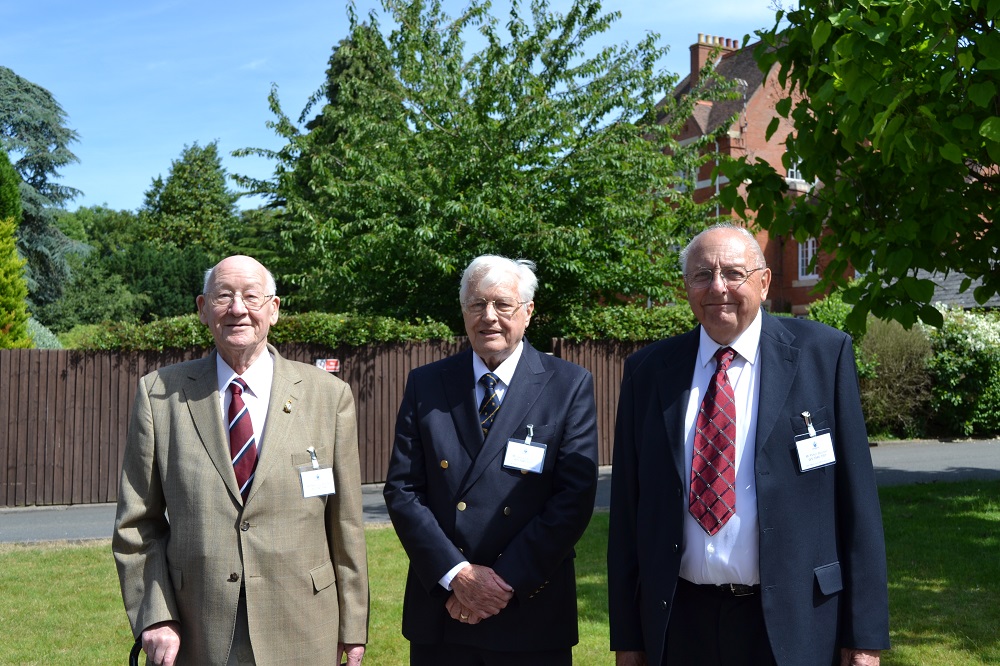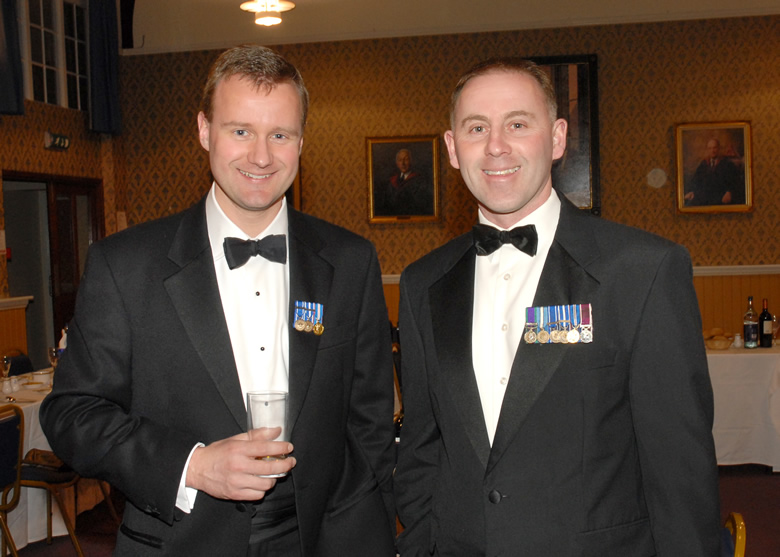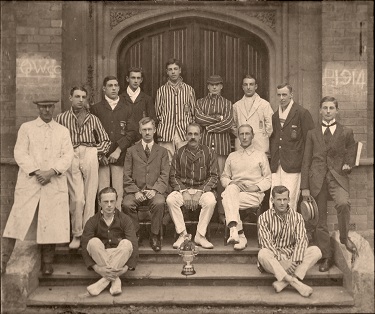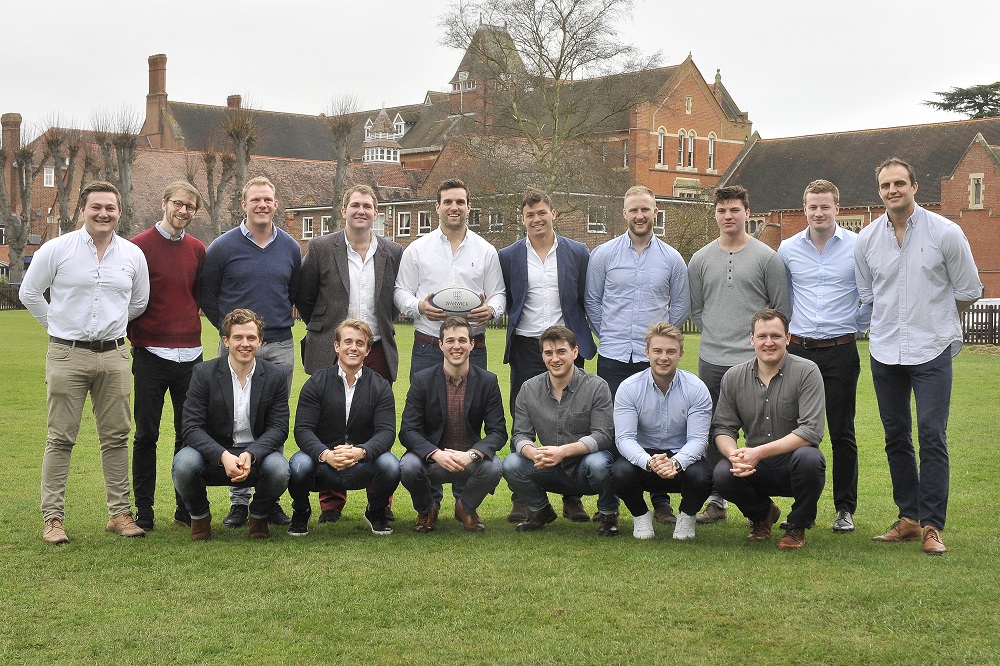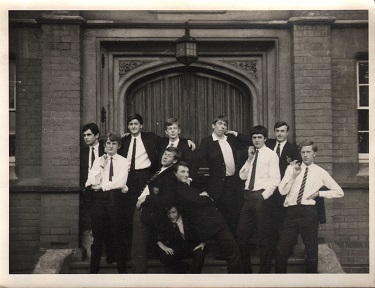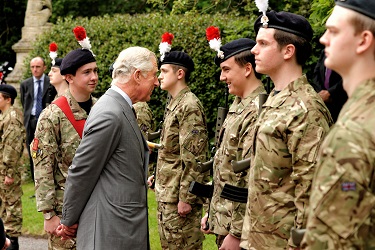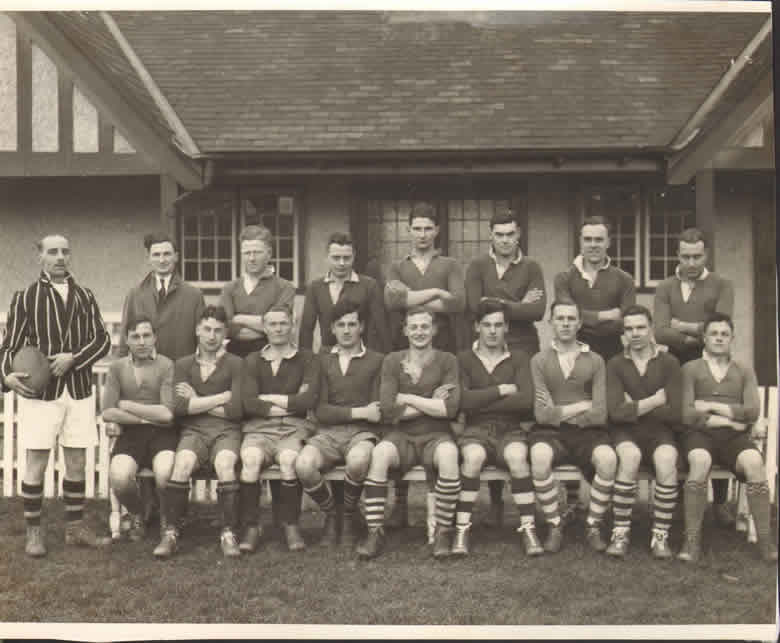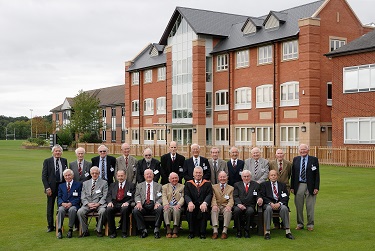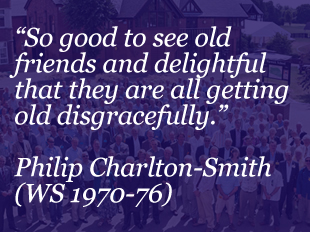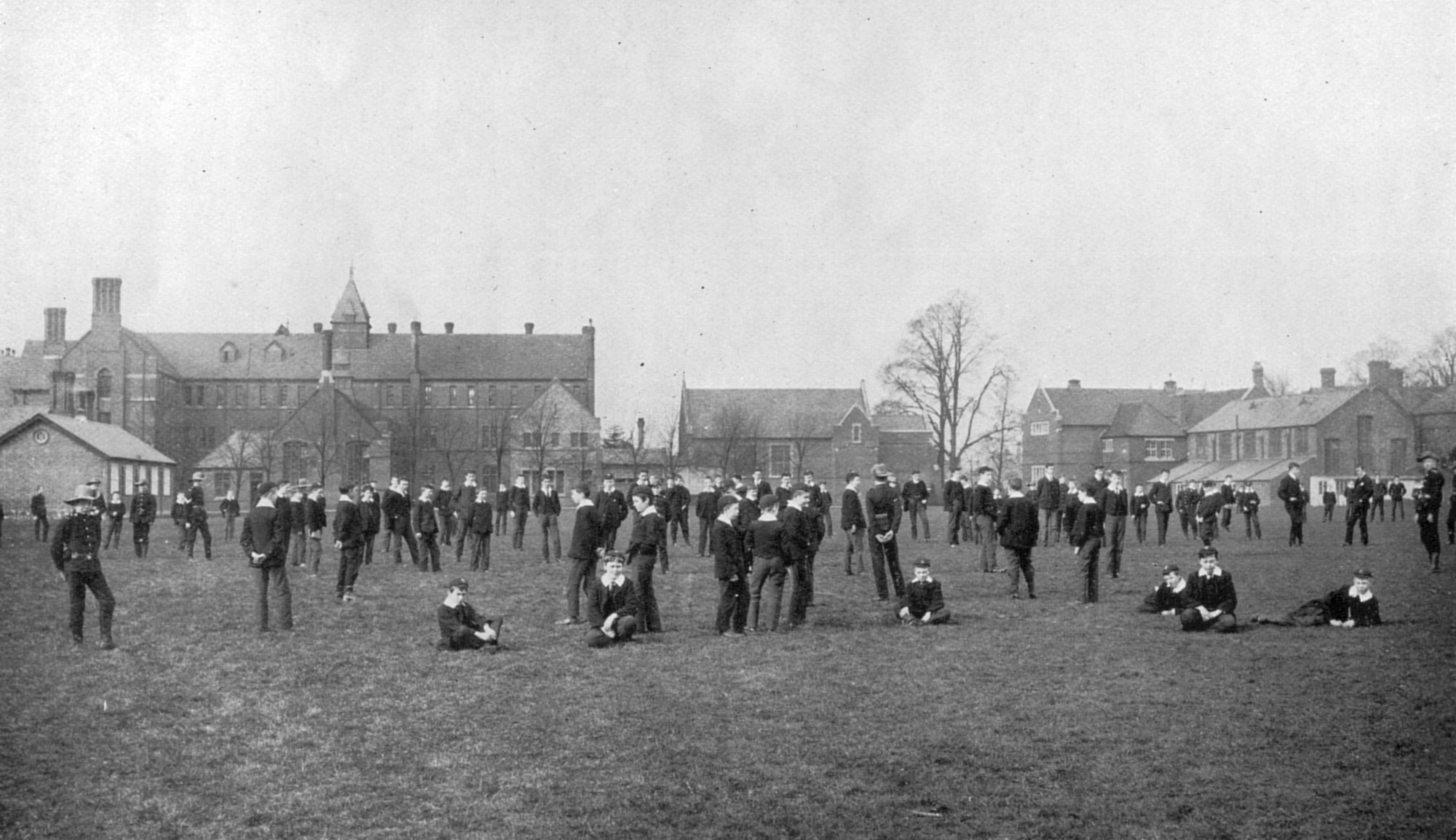1970 Letter from G A Riding
Letter[i] from G A Riding[ii], 1970
Colona,
Port Mellon,
Mevagissey,
St Austell. Cornwall
Tel 3440
29. xi. 70
My dear Thorpe[iii],
It will be hard for you to understand what great pleasure your kind visit, with your delightful boy Geoffrey, gave me yesterday. “Forty years on, when afar and asunder[iv]…” I hope I taught the school this song; I think I did. I have this morning been going through my bound volumes of the “Portcullis” covering my five years & there you are, in the “Valete” list of July ’31, “R. Thorpe, UVb, 1926-31, (Leycester) House Colours Athletics and P.T.; 2nd in individual P.T. Comp. 1931, OTC.” On the page before is a sad little paragraph in a black frame, recording the death of W E Andrew “after a long illness”, and on the same page as the Valete the tribute, on his death, to Sir Michael Lakin, the Chairman of the Governors, whom I bullied at the interview into making me the headmaster!
It was a great joy to me – and to my wife[v] – to indulge in so many reminiscences. While you were here, gradually the younger face that I remember on your shoulders took shape, and you became a boy again. I have, besides a complete set of the Portcullises, a set of the “Class Lists”[vi], which tell me that Leslie Robinson[vii] was your form master when you left. I came across the name of poor Paul[viii], struggling at the bottom of his form. The doctors who examined him said that his efforts to keep up with his school work had played a large part in upsetting his mind. When he came out of the institution to which he was sent, he wrote to me, asked me for a testimonial for the Law Society, as he had decided to be a lawyer! I confess that it was the hardest testimonial I have ever had to write, but I did send it to him, saying rather formally, but honestly, what I knew of his good points. What is left out of a testimonial is always more important than what is put in it!
I was not surprised to hear your saying that I struck the boys like a whirlwind when I came – the masters too! I knew I could not make it into another Rugby, but Rugby set my standards and my aim was always clearly before me. I had taken a great deal of trouble before my interview, largely though Canon Page[ix], to find out about the state of neglect the school was in and I let the Governors know that I was aware of what needed to be done. Before the term began I had a letter printed & sent to all the parents of boarders, saying the boys returning must be at the school by 7.0 pm. I had them all in the Dining Hall – perhaps you will remember - & started with a call-over. Three or four boys were not able to return because of illness. But I knew that the general previous practice had been for boys to come to the school, dump their things & go off to cinemas. Robinson caught the two or three who were missing & unaccounted for, and brought them to my study. They went to bed very sore that night! But there was never again any more trouble. The story went round that I had seized them by their legs & pulled them back from the windows – not true, but it did us a lot of good! One of the things I always used to aim at was letting the boys know what was expected of them, and by the end of five years they did! I was very glad a quite different kind of man, Percival Smith, was appointed[x]. I felt it was time someone more kindly and friendly should take over. He made the mistake of at once abolishing all rules & restraints. A. G. K. Brown was Captain of the School. At the end of Percival Smith’s first term, he[xi] caught all the prefects having an orgy in their studies[xii], smoking and drinking. He was broken hearted and deprived them all of their offices. A. G. K. Brown, now Headmaster of the Royal Grammar School, Worcester, wrote a long letter; he also almost broken hearted. He was Captain of the School[xiii]. His theme was that everyone had been allowed to do what they liked all the term. “How could we know that he would draw the line anywhere?” I still have his letter. It was the last night of the summer term & they went off in disgrace. Those who were coming back next term were re-instated.
At Aldenham the buildings & equipment were pretty poor but nothing like as bad as at Warwick. The discipline was I should think worse. There were all sorts of bad traditions, one of which consisted of the swells in the five boarding houses going out after lights out at the end of the summer term. The Captain of the School & four heads of other houses & a praepostor or two (prefects) got out of their houses at midnight. They were met by a sister of one of them & driven off to her home (the parents being away) & had a beanfeast in the house, climbing back into their houses at 3-30 a.m. The boarders all went off for the holidays that morning, and all of these chaps in high office had left the school. A housemaster tipped me off about it. Next morning I sent telegrams or telephoned them at their homes “Kindly report to me at the School House in my study at 11-0 tomorrow”. I think this could happen only in an English public school. Every one of them turned up, & owned up. I took my juiciest cane & gave them eight of the best & put the school out of bounds to them for two years. The Captain of the School had already joined the Army in the Marines. I shook hands with them all and the Captain of the School & the Captain of my own House came and spent the following week end at Seaview in the Isle of Wight, sailing with us! The only repercussion I had was from the father of a [sic] American boy, who threatened me with an action for assault and battery! It never came. The chap in the Marines was Capn of the Cricket and Football elevens & Hockey. He became a Lt-Colonel in Marines & was awarded an O.B.E. But the great thing was that I broke a bad tradition.
During the summer holidays before my first term, the O.T.C. was in camp on Salisbury Plain, & my wife & I drove over to pay them a visit[xiv]. The C.O., an old master of the school, said there was a group of “Bolshies” in the Corps who had been making trouble. All but two of them had left the school. In the middle of the term, the War Office wrote to me about it and asked if they might send an officer to talk to me about it. I of course assented. They sent a General with a V.C., one of the most outstanding soldiers of the Kaiser’s war, an Australian (Lieut-General Lord Freyberg V.C., G.C.M.G., K.C.B., K.B.E., D.S.O., Grenadier Guards[xv]), who said they looked to me to redress matters. I assured him that there were only two of the culprits left, that they had both been expelled from the Corps & that they were both due to leave – and I saw that they did – at the end of that term.
What a letter! I was sorry that you and I did all the talking yesterday. I should have greatly liked to get to know Geoffrey better. You must be very proud of him, and I am very glad he has a brother – Ian – in the Navy, with which I have had & still have some contacts.
Don’t let another 40 years go without coming to see us – but give us a bit of notice in case we miss you. My salutations to your wife, please; I am sorry she was not with you.
Forgive my garrulousness; all part of Anno Domini.
Very sincerely, George
[i] Kindly donated to Warwick School Archives by Geoff Thorpe in December 2007.
[ii] Born in 1888, Riding was headmaster of Warwick School from Easter 1928 to the summer of 1933. After leaving Warwick, he was headmaster of Aldenham School until 1948. He died in February 1982, aged 93.
[iii] Roger Thorpe, Warwick School 1926 – 31, father of Ian and Geoffrey Thorpe, both OWs, and grandfather of Rob and John Thorpe, both OWs.
[iv] Forty Years On, a song written by Edward Ernest Bowen and John Farmer in 1872, is about life at school and is meant to give pupils now an idea of what it will be like in forty years when they return to their old school, and to remind old boys about school life. It is the main school song of Harrow School.
[v] Mrs Aideen Riding was 17 years younger than her husband, and her relationship with pupils, one in particular in the 1930s, has been the subject of much speculation.
[vi] These were the precursors of the modern Blue Book (publication of which started in 1934). None of these “Class Lists” seems to have survived.
[vii] L H Robinson left the school to become one of His Majesty’s Inspectors, and was eventually knighted.
[viii] D L Paul set fire to the school twice, while it was full of boarders, on November 8th and 10th 1930. There were fortunately no casualties. Paul’s name only became more widely known in 2004.
[ix] Rev Canon F J G Page, former member of staff of Warwick School (1886-98) and later Master of the Lord Leycester Hospital. He was the first housemaster of the new Warwick School Junior House in 1889. His appointment as a governor of the school was announced in July 1928.
[x] Eric Percival Smith served as headmaster from 1933 – 1936. He was a single man and had serious health problems. He died in 1938.
[xi] This “he” refers to Percival Smith.
[xii] These studies were built alongside what was then Big School (now the Pyne Room) and were demolished when the main dining room was built early in the 1970s.
[xiii] This repetition occurs at the start of the second page of G. A. Riding’s letter.
[xiv] Riding is presumably referring to the occasion on 2nd August 1928 (after his first term, and not before it) when he visited the Warwick School O.T.C. on camp on Salisbury Plain.
[xv] General Bernard Freyberg, 1889 – 1963, was New Zealand’s most famous soldier. Baron Freyberg served as Governor-General of New Zealand from 1946 - 1952.
G N Frykman, Archivist.

